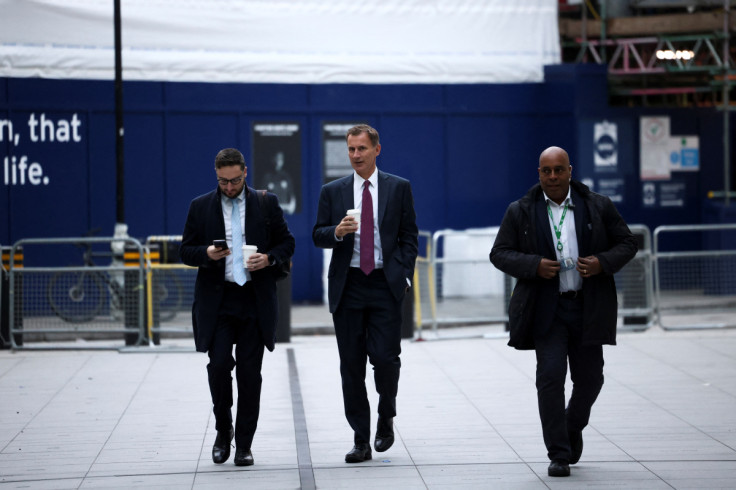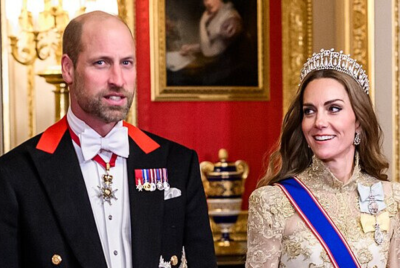Analysis-Despite tax U-turn, UK's Hunt still faces tough budget choices
The screeching about-turn on tax cuts by finance minister Jeremy Hunt on Monday will not spare Britain from painful spending cuts and new tax hikes to fix the country's public finances.
The screeching about-turn on tax cuts by finance minister Jeremy Hunt on Monday will not spare Britain from painful spending cuts and new tax hikes to fix the country's public finances.
Hunt stripped Prime Minister Liz Truss's economic plans of all but a few of her tax-cutting promises as he rushed to stem the crisis in confidence that they set off in Britain's bond market.
Government debt prices recovered some of their huge losses of the past few weeks and the pound rose after his announcement.
But the challenge for Hunt to repair the public finances - and Britain's economic credibility - is far from done, with no pain-free options available.
The economy is already on course for a recession, with a cost-of-living crisis affecting millions, labour unions pressing for pay deals to match 10% inflation and many public services under strain after more than a decade of tight controls on spending.
"There will be more difficult decisions to take on both tax and spending as we deliver our commitment to get debt falling as a share of the economy over the medium term," Hunt said as he announced an almost complete rewriting of Truss's programme.
The next challenge for the former health and foreign minister, who was named to run the Treasury on Friday after Truss fired his predecessor - and her own close ally - Kwasi Kwarteng, is to deliver a medium-term tax and spending plan on Oct. 31.
Paul Johnson, director of the Institute for Fiscal Studies, a think-tank, said Monday's tax cuts U-turn was relatively simple compared with the balance Hunt must strike between more tax increases and spending cuts over the next two weeks.
"What he says on spending is a much harder judgment," Johnson told the BBC.
The health service, the biggest single item of public spending, remains sacrosanct for many voters, while cuts to education and welfare would be politically difficult too. Cuts to defence, another big area of spending, would put at risk Truss's support for Ukraine, a cornerstone of her premiership.
"These are really hard areas to cut," Johnson said.
Unlike Kwarteng's "mini-budget" that triggered the bond market rout on Sept. 23, Hunt's plan will come with forecasts for the economy and the public finances drawn up by the independent Office for Budget Responsibility.
The Sunday Times said the OBR had warned the government that Truss's original plans would leave the budget on course for a shortfall of up to 72 billion pounds ($81.7 billion) a year.
Hunt said the tax U-turns announced so far would raise about 32 billion pounds a year in extra revenues. He also scaled back the government's hugely expensive energy price cap programme from next April.
DEBT STILL MOUNTING
Samuel Tombs, an economist with Pantheon Macroeconomics, said Britain was still set to borrow more than 100 billion pounds annually by the 2025/26 financial year after Monday's announcement by Hunt.
That was 40 billion pounds above the level needed to cut debt as a share of the economy which currently is about 97%.
But getting rid of that only through spending cuts would be too politically painful given the pressure on health and pensions spending from an ageing population and the impact of surging inflation on real-terms spending, Tombs said.
"Some tax rises, therefore, likely will be announced in the Medium-Term Fiscal Plan as well, to achieve the required consolidation," he said.
Some called for a rethink of the way Britain designs its taxation system, saying it was time for more of the burden to fall on wealth rather than incomes, especially with an approaching recession forecast by many economists.
The Institute for Public Policy Research, a progressive think tank, said taxes should rise on capital gains and income from wealth to the same level as taxes on income from work, and an existing windfall tax on power firms should be broadened.
But those kind of tax increases would probably be a step too far for the ruling Conservative Party, many of whose members voted for Truss in the leadership campaign because she promised to bring down taxes.
As things stand now, taxes as a share of GDP are set to rise to 36% by the end of the parliament, due in 2024, up from 33% at the start in 2019, the highest sustained level since 1950-51, according to the Resolution Foundation, another think-tank.
"With tens of billions of spending cuts still to come, and a new energy support package needing to be devised, many of Jeremy Hunt's tough choices still lie ahead," Torsten Bell, chief executive of the Resolution Foundation, said.
($1 = 0.8817 pounds)

Copyright Thomson Reuters. All rights reserved.



















